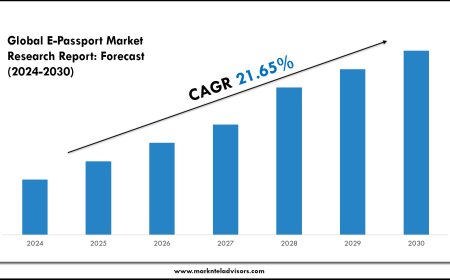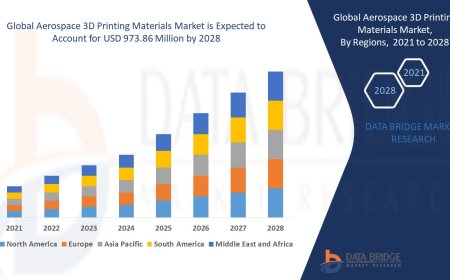Digital Transformation 101: What It Means and Why It Matters for Modern Businesses

In todays rapidly evolving business landscape, the term digital transformation has become a crucial concept for organizations striving to remain competitive and relevant. But what exactly does digital transformation mean, and why is it so important for modern businesses? This blog will provide a comprehensive overview of digital transformation, its key components, and its significance in driving business growth and innovation.
What is Digital Transformation?
Digital transformation refers to the integration of digital technologies into all areas of a business, fundamentally changing how the organization operates and delivers value to customers. It is not merely about adopting new technologies but involves a cultural shift that encourages continuous innovation, agility, and a customer-centric mindset.
At its core, digital transformation is about leveraging tools such as cloud computing, artificial intelligence (AI), the Internet of Things (IoT), big data analytics, and automation to streamline processes, improve efficiency, and create new business models. This transformation impacts every departmentfrom marketing and sales to supply chain and customer service.
The Key Drivers of Digital Transformation
Several factors have accelerated the need for digital transformation in recent years:
-
Customer Expectations: Todays customers expect seamless, personalized experiences across multiple channels. Businesses that fail to meet these expectations risk losing market share to more agile competitors.
-
Technological Advancements: Rapid developments in AI, machine learning, and cloud technologies have made it easier and more cost-effective for businesses to innovate and adapt.
-
Competitive Pressure: Digital-native companies and startups disrupt traditional industries by leveraging technology to deliver faster, cheaper, and better services.
-
Operational Efficiency: Automation and data-driven decision-making reduce operational costs and improve accuracy, enabling businesses to scale efficiently.
Benefits of Digital Transformation for Modern Businesses
Implementing digital transformation offers several tangible benefits that directly impact business performance:
-
Enhanced Customer Experience: Digital tools allow companies to gain deeper insights into customer behavior and preferences, enabling highly personalized marketing and service.
-
Improved Agility and Innovation: Businesses become more flexible and responsive to market changes, allowing them to launch new products and services faster.
-
Increased Operational Efficiency: Automating repetitive tasks and optimizing supply chains reduces costs and minimizes human error.
-
Data-Driven Decision Making: Advanced analytics provide actionable insights, helping leaders make informed strategic decisions.
-
New Revenue Streams: Digital transformation often leads to new business models, such as subscription services or digital marketplaces, which can diversify income sources.
Challenges in Digital Transformation
Despite its benefits, digital transformation is not without challenges. Many organizations struggle with legacy systems that are difficult to integrate with new technologies. Resistance to change among employees, unclear strategy, and lack of skilled talent can also hinder progress. Additionally, cybersecurity risks increase as companies adopt more digital tools, making robust security measures essential.
Successful digital transformation requires a clear vision, strong leadership, and a culture that embraces innovation and continuous learning.
Examples of Digital Transformation in Action
Several industries illustrate how digital transformation is reshaping business:
-
Retail: E-commerce platforms, personalized recommendation engines, and mobile payment solutions have transformed how customers shop.
-
Healthcare: Telemedicine, electronic health records, and AI-driven diagnostics improve patient care and operational efficiency.
-
Manufacturing: IoT-enabled smart factories and predictive maintenance optimize production and reduce downtime.
-
Financial Services: Digital banking, blockchain, and robo-advisors enhance customer service and security.
How to Start Your Digital Transformation Journey
Embarking on a digital transformation journey involves several critical steps:
-
Assess Current Capabilities: Evaluate existing technology, processes, and organizational readiness.
-
Define Clear Objectives: Align transformation goals with business strategy, focusing on customer needs and operational improvements.
-
Develop a Roadmap: Create a phased plan that prioritizes initiatives with the highest impact and feasibility.
-
Invest in Technology and Talent: Select appropriate technologies and train or hire skilled professionals to manage them.
-
Foster a Culture of Innovation: Encourage experimentation, collaboration, and adaptability throughout the organization.
-
Measure and Iterate: Use data analytics to track progress and continuously refine your approach.
Why Digital Transformation Matters for Modern Businesses
In an era defined by technological disruption and shifting consumer behaviors, digital transformation is no longer optional. It is a critical enabler for businesses that want to thrive in the digital age. Companies that successfully transform their operations and customer engagement strategies will enjoy improved efficiency, stronger market positioning, and greater resilience against future disruptions.
Moreover, digital transformation empowers organizations to unlock new value, anticipate trends, and deliver innovative solutions that meet evolving customer demands.
Conclusion
Digital transformation is a comprehensive and ongoing process that reshapes how businesses operate and compete. By embracing digital technologies and fostering a culture of innovation, modern businesses can drive growth, enhance customer experiences, and improve operational efficiency. For organizations ready to embark on or accelerate this journey, partnering with experts who provide a blueprint service can be invaluable in creating tailored strategies that ensure sustainable success in the digital era.




































